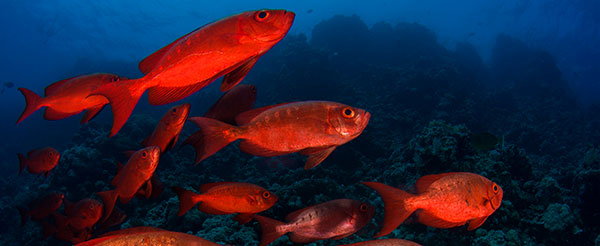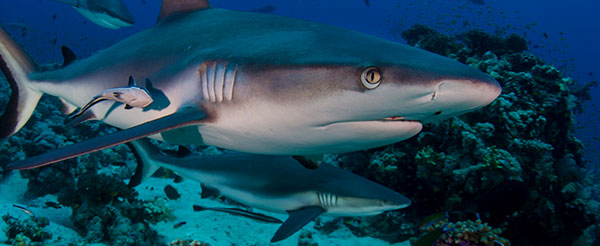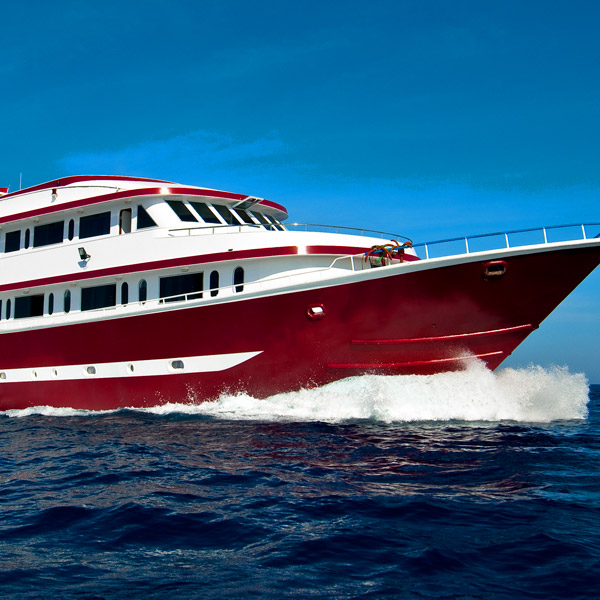Frequently asked questions about Egypt
Which time zone is Egypt in?
Central-European time zone + 1 hour. There is no summer/winter savings time since 2011.
What is the weather like in Egypt?
Egypt has a desert climate with warm and dry weather conditions. In the summer months (April-October) the average temperature is between 27°C and 32°C but in the interior areas of the desert it can get even warmer. Summer temperatures along the Red Sea coast are between 27°C and 43°C with northerly winds and southward currents. In the north, winds from the Mediterranian Sea ease the heat. Winters are mild with average temperatures of 13°C – 21°C. Most precipitation is during the winter months; south of Cairo it is about 2 – 5 mm while in the north it can reach 410 mm. There are strong southerly winds in the end of October and the in the beginning of November and currents move in a northern direction. (Water temperatures in the area of Sharm el Sheikh and Hurghada may be 1 – 2°C cooler.)
What kind of clothes to wear in Egypt?
Thanks to the warm weather, light clothes made of cotton, skirts, shorts, short-sleeve T-shirts and blouses, flip-flops and sandals are the best choice. Hats, sunglasses and tanning lotion (with minimum SPF30) are also important. It is recommended to stay indoors or in the shade during the noon hours. In winter during the day long pants and a light sweater are enough but in the evening a jacket or a light coat may come handy. In the resort towns like Hurghada and Sharm el Sheikh, there are no rules concerning clothing wear as long as it is in good taste however in larger cities like Cairo, it is recommended to wear clothing that is at least below the knees and covers the shoulders. The rules in religious or holy places are even stricter and girls and ladies must cover their heads. Onboard Cassiopeia and Andromeda light, comfortable clothing is acceptable. In the evening a light sweater or cardigan may come handy but during the day bathing suits, shorts and T-shirts are quite acceptable.
What is Egyptian cuisine like?
It is very versatile, delicious and rich in fresh vegetables. The main meals are made of beef, mutton, chicken, pigeon and duck and fresh fish is also often used. Traditional desserts are really sweet and at the markets, vendors’ stands are ladended with gorgeous fresh fruits. Egyptian chefs prepare the meals onboard Cassiopeia and Andromeda and their heritage is reflected in the delicious meals they prepare for the buffet-style servings three times a day. The menu includes soups, fresh salads, meats, side dishes and sweets which are also available during the day along with fresh fruits. (Pork is not widely available in Egypt because of religious reasons.)
What is the electrical current like in Egypt?
There is 220v current with European-style plugs. There are electrical plugs in every cabin and in the common areas and also there is a separate charging station on the main deck where phones, laptops, cameras and batteries can be charged.
Is vaccination needed for travelling to Egypt?
It is recommended but not mandatory for travellers to Egypt to get vaccination against: Hepatitis A (high risk of contagion), Hepatitis B (moderate risk of contagion), Typhus and rabies. However it is mandatory to get the vaccination against yellow fever when entering Egypt from countries or having travelled through countries with high risk of the disease (from example when travelling to Egypt from Sudan).
Haggling (bargaining) in Egypt
Haggling in Egypt is a must. Everyone bound for shopping should be prepared for a ”dispute” lasting anywhere from 1-2 minutes to half an hour but ultimately ending in a successful shopping experience. There are rules to haggling. One of them is to say the amount that is half of the actual amount you would be willing to spend. Onboard our vessels all prices are fixed and they are not subject to bargaining.
Egyptian consular offices
Look for an Egyptian Embassy of Consular Office in your country or nearest you.
Telephone
Mobile phones can be used in Egypt. Contact your local mobile service provider for rates and details.
Opening hours
Most shops are open from 10 o’clock in the morning until as late as midnight sometimes. Banks are closed on Fridays and Saturdays. On Sundays and during Ramadan they are open between 10 o’clock in the morning and 13:30 in the afternoon. On all other days they are open between 8:30 in the morning and 13:30 in the afternoon.
Holidays
Friday is the official day off and in some offices Saturday as well. One of the most important holidays are the last 2-3 days at the end of the Ramadan month and the feast 70 days later.
Tipping
It is part of every-day life in the Middle-East and in the Arabic world.
Medical care
Contact your dive guide onboard in case of any medical problems or emergencies. All medical costs must be paid in cash on site. Insurance companies will reimburse costs based only on valid hospital bills.
Transportation
Taxi is the most comfortable way of transportation in the towns and cities. Despite the taximetre, it is wise to agree on the fare before the trip. Shuttle buses run between towns carrying locals and visitors alike. Local mini buses and coaches tend to be quite crowded.
Photography and videography
It is forbidden to take photos or videos of military facilities, bridges and harbours. Please obey these rules! It is allowed to take photos of important and tourist sights but in certain places only for a fee.



